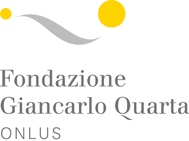Frontiers in Psychology, March 2021, Volume 12
NEURAL RESPONSES OF BENEFITING FROM THE PROSOCIAL EXCHANGE: THE EFFECT OF HELPING BEHAVIOR
Daniele Olivo1,2, Andrea Di Ciano3, Jessica Mauro2, Lucia Giudetti3, Alan Pampallona3, Katharina M. Kubera4, Dusan Hirjak5, Robert Christian Wolf4 and Fabio Sambataro1,2,6
1 Department of Neuroscience (DNS), University of Padua, Padua, Italy
2 Department of Medicine (DAME), University of Udine, Udine, Italy
3 Fondazione Giancarlo Quarta, Milan, Italy
4 Center for Psychosocial Medicine, Department of General Psychiatry, Heidelberg University, Heidelberg, Germany
5 Department of Psychiatry and Psychotherapy, Central Institute of Mental Health, Medical Faculty Mannheim, Heidelberg University, Mannheim, Germany
6 Padua Neuroscience Center, University of Padua, Padua, Italy
Prosocial behavior is critical for the natural development of an individual as well as for promoting social relationships. Although this complex behavior results from gratuitous acts occurring between an agent and a recipient and a wealth of literature on prosocial behavior has investigated these actions, little is known about the effects on the recipient and the neurobiology underlying them. In this study, we used functional magnetic resonance imaging to identify neural correlates of receiving prosocial behavior in the context of real-world experiences, with different types of action provided by the agent, including practical help and effort appreciation. Practical help was associated with increased activation in a network of regions spanning across bilateral superior temporal sulcus, temporoparietal junction, temporal pole, and medial prefrontal cortex. Effort appreciation was associated with activation and increased task-modulated connectivity of the occipital cortex. Prosocial-dependent brain responses were associated with positive affect. Our results support the role of the theory of mind network and the visual cortices in mediating the positive effects of receiving gratuitous help. Moreover, they indicate that specific types of prosocial behavior are mediated by distinct brain networks, which further demonstrates the uniqueness of the psychological processes underlying prosocial actions.
Per leggere l’articolo completo:
https://www.frontiersin.org/articles/10.3389/fpsyg.2021.606858/full
